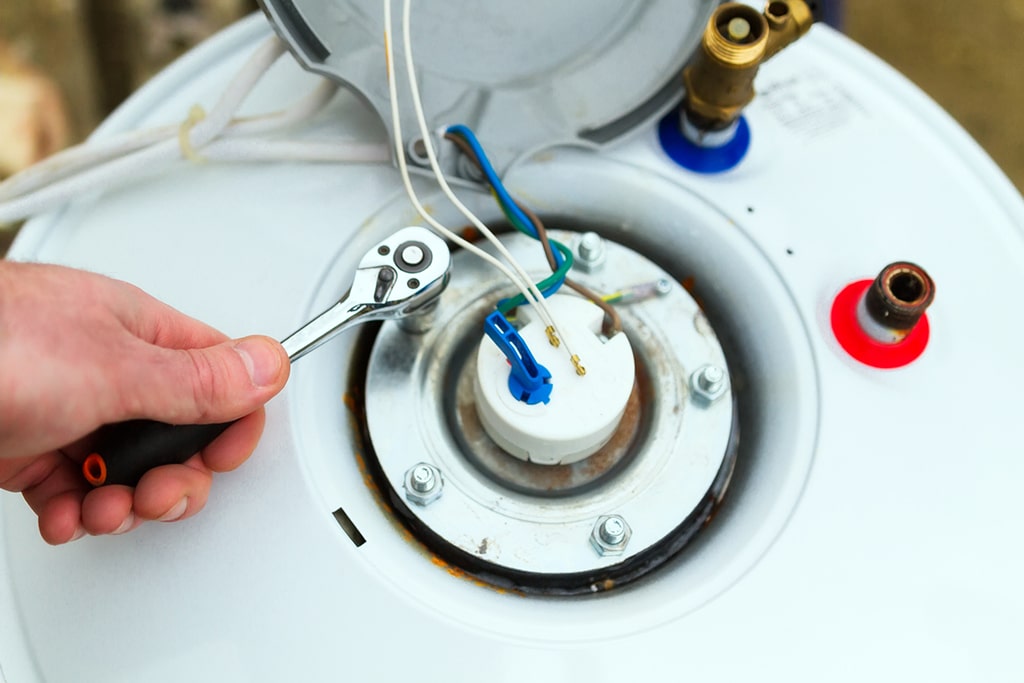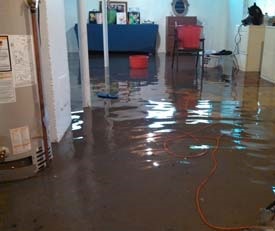Vital Recommendations for House Owners Managing Malfunctioning Heating Units
Vital Recommendations for House Owners Managing Malfunctioning Heating Units
Blog Article
Are you currently interested in facts about Water Heater Repair?

Whether it is located in the cellar or a separate area, damaged water heating units can cause stress. Having no warm water supply is also troublesome.
Call the Plumber
After doing the very first 2 safety steps, you have to call your plumber to come right away to repair a burst water heating system. There are typically indications that your aging water heating system has debris buildup in the interior.
Instead, as quickly as you identify these signs, have actually a professional come to check your water heater storage tank. Generally, water heating systems have a lifespan of regarding 8 to 12 years.
Cut Off the Cold Water Supply
Cut off the storage tanks tap water supply from the source. When your storage tank is in excellent problem, the chilly water quits loading up when the storage tank is complete. If you can not locate it or reach it, you must transform off that primary water supply line outside your residential property.
Shut Down Source Of Power
Prior to calling the plumber, shut off a gas water heater by turning the temperature dial. This is normally situated on top of the thermostat. If you have a version that works on electrical power, turn off the circuit breaker. This will certainly protect against electrocution, particularly if there is a leak as water is a conductor. Normally, the burner turns off when the water hits a particular temperature. Yet with a broken storage tank, it might malfunction. Cutting it off ensures you remain risk-free.
Tidy up Residential property
After calling the plumber, paper damages by taking notes and pictures so you can claim your home owner's insurance. Eliminate any standing water to protect against mold and mold growth. If you have a completely submersible water pump, use that to drain pipes the water.
Bear in mind, if you see any type of problems with your water heater, call the pros right away. You can not take this issue lightly since a malfunctioning thermostat can elevate water temperature to a hazardously high level, resulting in unexpected burns. A broken heating system pressure safety valve can also create an explosion. For best results, obtain an annual check so your device gets examined, cleansed, drained, as well as filled up, assuring optimum efficiency.
After doing the very first two safety and security steps, you need to call your plumber to come right away to take care of a burst water heating unit. Instead, as quickly as you spot these indicators, have a professional come to check your water heating system storage tank. Prior to calling the plumber, shut off a gas water heating system by transforming the temperature level dial. If you have a completely submersible water pump, utilize that to drain the water. Bear in mind, if you discover any kind of issues with your water heating unit, call the pros right away.
Is My Water Heater Broken?
The Water Heater is Old
No appliance will last forever. This includes a home’s water heater. During its lifespan, residents are going to face a situation where a new water heater installation will be necessary. The biggest problem with this is that most people are not sure when their water heater expires. Not knowing this can lead to serious risks if the unit begins to act up due to old age.
Most makes and models of water heaters will last between eight and 10 years. While 10 years is the age when water heater replacement is highly recommended, the need to replace the unit may occur before this time or after. If the unit doesn’t show any symptoms of a problem, it is a good idea to replace it at the 10-year mark (from the manufacture date).
Some of the symptoms that indicate a new unit is needed include rusting, leaks, noises, and a failure to heat up the water. Also, note that not all units have a 10-year life expectancy. The main exception to this rule is that a gas unit will last for six to eight years.
Rusty Heater Inlet Valve or Water
While steel is the strongest material on earth, it does have a weakness – rust. If corrosion occurs on a steel surface, it will begin to spread and eat through the steel in certain areas. On water tanks and pipes that are made of steel, rust is a warning sign of an impending leak.
The issue for many is trying to figure out if the rust is coming from the water heater or the pipes that lead to the faucet. If rust is seen, it is a clear indication that water heater service from the professionals is needed.
If rusty water appears out of the faucets in the bathtub or sink, it likely means a rusty water heater. If there is rust near the water inlet or the pressure relief valve, rust has likely developed inside the tank. If tap water appears rusty, it may be an issue with the pipes.
Strange Sounds from the Water Heater
Are there strange sounds coming from the tank? As a water heater gets older, rumbling noises may develop and get louder and louder as the water in the tank heats up. In homes where large amounts of hot water are used, the issue is likely going to be even more obvious when more serious issues arise. If there is a strange or loud noise coming from the unit, it is probably because of sediment buildup. A good way to remedy this problem is by flushing the heater. If this does not work, then a new unit may need to be installed.
Leaks
As a water heater gets closer to the end of its useful life, there is a higher chance there will be water around the tank. If there is water, this usually means leaks are occurring. Based on where the unit is located in the home, a leak may result in serious property damage.
Leaks are usually caused by expansions in the metal tank. The expansions occur as time passes and as the inside body of the tank is exposed to multiple heating cycles per day. When a fracture forms, the gap will be slight enough to hold the water in; however, in more serious situations, this will not be the case. If the tank is idle, the water will not leak but when the metal expands during each heating system, small amounts of water will get through the gap.

I found that content on Water Heater Repair while exploring the search engines. For those who enjoyed our page if you please remember to pass it around. Thank you so much for taking the time to read it.
Instant help? Contact. Report this page